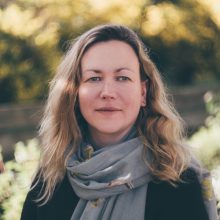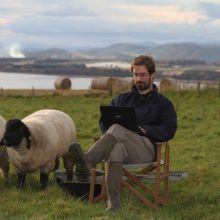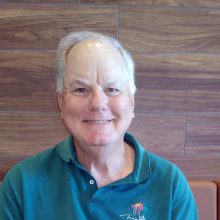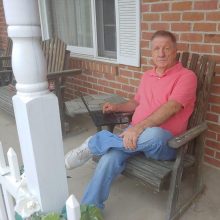The Growing Season by Helen Sedgwick
What led you into writing?
I was working as a bioengineer but starting to feel that I wanted to change career, and I took an evening class in creative writing. I’d also taken evening classes in Indian dancing, Thai cookery, French, and life drawing, but the creative writing was the one that I loved. The tutor suggested I apply to do the masters in creative writing at Glasgow University – where I was working as a researcher – and when I got a place I was able to go part time with my job. It was a wonderful year, getting to be half-scientist (and member of staff) and half-writer (and student) but at the end of the year the writing had won out. I left science to write, which in practice meant working as a creative writing tutor and freelance editor until my first book was published ten years after I started writing.
How does a typical day look?
There is no typical! I have a young baby at home, so for at least part of every day I’m looking after her, and the writing really has to fit around that. But I do try to write something every day, when it’s going well. If it’s not happening at all, then I give myself a break and do other things. Sometimes I can write for hours without stopping, while other days a hundred words takes all the energy I’ve got and then I need to get out of the house. I also work as a freelance editor, so there’s that to be getting on with as well – the life of a writer seems a bit like a juggling act at times. But on my most productive days, I’ll sit down at the computer in my writing room, first thing in the morning, and just write and write for as long as I’m enjoying it.
In what ways do your characters test your abilities?
Well, thinking my way into other people’s minds – especially if they are completely different to me – is a large part of the joy of writing for me. I think perhaps that’s why I write, and why I always end up with so many characters in my novels. I find myself talking to them, arguing with them, walking around with them beside me… And I think it’s important to listen to who they are. I don’t mean that my characters are in control of the story – they absolutely shouldn’t be – but I mean that once they have come alive to me, it’s important to write them in a way that is true to who they are, even if that means the story has to adapt to accommodate them. I always try to write my characters as honestly and as respectfully as I would want to be written myself, even if I personally think they are absolutely in the wrong.
What’s your setup?

I write and work from home, and am very lucky to have the space for a dedicated writing room. Three out of four walls are lined with books, and beyond my desk are French doors looking out into the garden. It’s a peaceful view!
What lasting effects have your favourite authors had on your writing and style?
I think all of us are products of a wide range of influence – none of us can exist in a vacuum. It’s so hard to pinpoint a specific influence though. For me it’s more that ideas and styles from all sorts of different sources have blended together, from the gender politics and humanity of Ursula LeGuin to the multiple viewpoints of Kate Atkinson to the subtlety and unspoken longing of Ishiguro.
What do you do for inspiration?
I walk, I garden, I listen to music and look at art; I try to get away from myself. And of course, like all writers, I read. Inspiration comes from living your life, and reading about others’ lives, I think.
What repeating themes do you find yourself pulling into your stories?
Where to start! Science and the influence of science on society, the human capacity for change, feminism, family, belonging, the sense of there being something else out there that we don’t understand, the pull of the unknown perhaps, and the differing views we hold about the world. What happens when we fundamentally disagree with those we love.
How do you wind down?
The same things as I do when I’m looking for inspiration – the two go hand in hand for me.
What sort of challenges do you regularly overcome while world-building?
Strangely I don’t find world-building challenging at all – the truth is I rarely think about it. The world I’m writing about, much like the characters, just seems to come alive for me. I spend a lot of time thinking about things like structure and plot in a more conscious way, but the world builds up around me as I write and I just immerse myself in it. It’s instinctive and organic.
What’s the most useful advice you could give to an aspiring author?
Read as much as you possible can, and write from a place that is genuine.
Tell us about the book you’re promoting.
The Growing Season is set in a world that is very similar to our own, except for the recent invention of a portable external womb. The rapid acceptance of this biotechnology has meant that parenthood and childbearing are now shared equally between the sexes, and as a result a more equal society has evolved. But there are problems below the surface that are starting to bubble up, problems to do with class and privilege, reproductive rights, corporate ethics and private healthcare – and a company that has too much power. It is the story of three people who fundamentally disagree with each other, finding a way to listen.
Other interviews with Helen Sedgwick
👋 Hi! I run Author Interviews
As a new writer I found myself itching to contribute to a thriving, creative community, so I made Author Interviews and I've met loads of wonderful people in the process. You can buy my debut fantasy RINGLANDER: THE PATH AND THE WAY from Amazon.
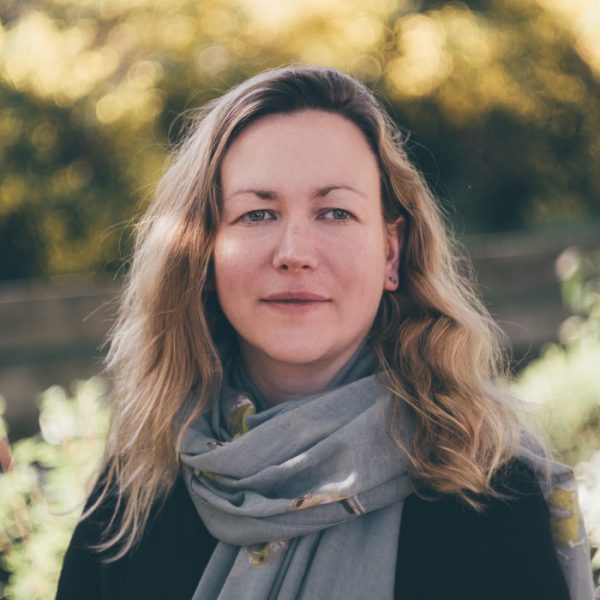
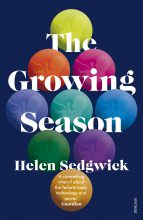
 Audible
Audible